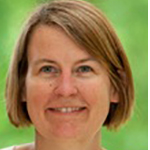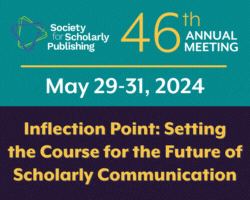Director of Access and Policy , Elsevier UK
 Please tell us a bit about yourself (e.g. hometown, current locale, course of study).
Please tell us a bit about yourself (e.g. hometown, current locale, course of study).
I was born in the US, and came to the UK just over 20 years ago. The original plan was to stay for 6 months, but I ended up staying and marrying a really cute Brit and now have dual citizenship and two wonderful dual nationality children. In terms of study, I have a PhD in Anthropology from the University of North Carolina–Chapel Hill and specialized in Scottish archaeology, particularly the Roman invasion of Scotland and their resistance to this.
Describe some of your current responsibilities, and what type of organization you belong to.
The publishing company I work with is Elsevier. Elsevier provides web-based, digital solutions—among them ScienceDirect, Scopus, Elsevier Research Intelligence, and ClinicalKey — and publishes nearly 2,200 journals, including The Lancet and Cell, as well as over 33,000 book titles, including a number of iconic reference works. It’s a terrific place to work and very multi-cultural, although primarily an Anglo-American-Dutch company. Elsevier is part of RELX Group, which describes itself formally as a world-leading provider of information solutions for professional customers across industries.
My role is quite exciting as I help position our company to be effective in a fast-changing world. In particular I focus on new Open Access publishing models and strategic communications and engagements around these new models. Internally that means getting different parts of our business to work together in innovative ways and to embrace change. Externally it means engagement with a wide array of people, from advocates impatient for change seemingly overnight to pragmatists who I’d like to see sensible change in sensible timescales to those who aren’t aware, or are resistant to, the idea that any change is needed at all. Terrific stuff–I love, love, love complex culture and change management scenarios.
What was your first scholarly publishing role? How did you get that job? What path led to your current position?
I was an archaeologist at the University of York, happily so, and saw a job advertised with the Jisc. They were looking for someone totally enthusiastic about access to digital information (this was back in the late 1990s) and were willing to train that person to negotiate on behalf of UK universities for access to information. I applied and was surprised to be offered the job. I dithered for about 3 weeks because it was a really, really hard decision to leave archaeology–I had wanted to be an archaeologist all my life. But I’m really glad I did and have been following my nose ever since. The thread that has connected all my roles is enabling access to information and overcoming any barriers to achieve this
What tools, web sites and organizations do you find most valuable for your career development?
This has changed over the course of time but in general I try to read around my subject voraciously and am open to advice, guidance, and training. Right now I find the Scholarly Kitchen particularly useful, of course!!
What are some of the surprises/obstacles that you’ve encountered during your career?
People are endlessly surprising, often in positive ways, but are also too often inclined to jump to negative conclusions about another’s actions and motivations. I underestimate this time and time again and often need to slow down, explain things more clearly, and check for even subtle signs of concern or disagreement. A pleasant surprise, time and time again, is how far listening respectfully to the views of others and good manners can carry people forward together.
What do you wish you knew more about?
Oodles of things! At the minute hedgehogs–I found one in my back garden, and it seems to have decided to hibernate by burrowing into a shallow hole under a shrub. We’ve moved it into a safer position under a loose pile of sticks, but honestly can’t tell if it is alive. Guess we’ll find out in the spring.
What advice would you give to people interested in a career in scholarly communications?
Go for it so long as you are a person who enjoys change or at least copes reasonably well with it. It is our one certainty.
Watch a video interview with Alicia Wise and other SSP members, as they answer the following questions:
What are the essential publishing skills for scholarly publishers?
How do you think scholarly publishing will evolve over the next 5 years?


